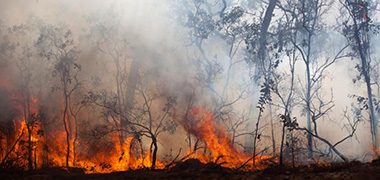
This role has a high level of AI exposure. While some human skills are required, many tasks could be automated or replaced by new technology.
Explore all careersA Conservation Scientist studies and protects ecosystems by managing habitats, monitoring wildlife, and developing strategies for biodiversity preservation.
Browse occupations related to Conservation Scientist



For those aspiring to pursue a career in environmental preservation, enrolling in Conservation Scientist courses in Launceston is an excellent choice. These courses equip students with the vital knowledge and skills necessary to understand and manage natural resources sustainably. Launceston, with its rich biodiversity and commitment to environmental conservation, serves as the perfect backdrop for such studies. Students can expect an engaging educational experience that aligns with local ecological contexts, reinforcing their understanding of conservation practices relevant to the area.
The field of conservation science encompasses various interconnected disciplines, including Environment and Sustainability courses and specific programmes in Environmental Management. By integrating these fields of study, students gain comprehensive insights into effective environmental stewardship. These programmes are designed to foster a culture of sustainability, enabling aspiring conservationists in Launceston to become adept at tackling contemporary environmental challenges.
In addition to the core curriculum, students can benefit from exploring related job roles that can complement their education. Careers such as Environmental Consultant, Conservation Trainee, and Ecologist offer diverse pathways for graduates. Furthermore, roles like Environmental Manager and Environmental Specialist allow professionals to have a direct impact on conservation initiatives in the region. With several options available, students can tailor their educational journey to fit their vocational aspirations.
Those pursuing careers in conservation may also find roles such as Conservation Officer and Field Assistant particularly appealing. These positions often entail hands-on work in environmental management and wildlife protection, directly contributing to the health of Launceston's natural habitats. Additionally, training in Environmental Educator and Environmental Advocate roles fosters community awareness and engagement, vital for holistic conservation strategies.